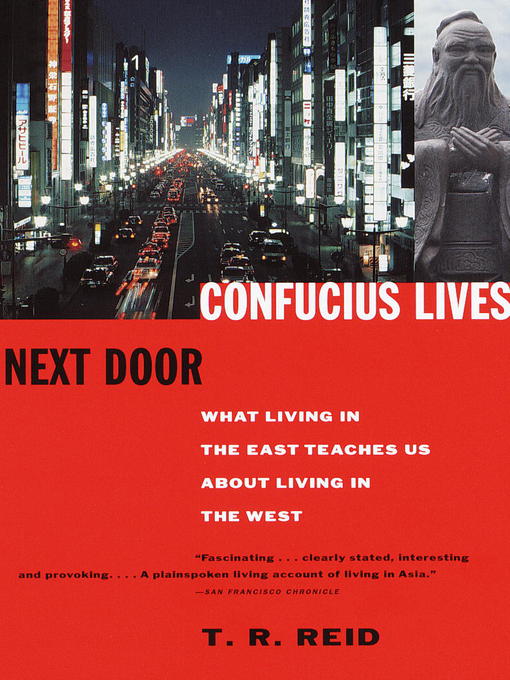
Confucius Lives Next Door
What Living in the East Teaches Us About Living in the West
کتاب های مرتبط
- اطلاعات
- نقد و بررسی
- دیدگاه کاربران
نقد و بررسی

March 1, 1999
In this breezy homily, Reid, an NPR commentator who was the Washington Post's Tokyo bureau chief for five years, offers a look at what he calls Asia's "social miracle" (as opposed to its once vaunted economic growth). The nations of East Asia, he reports, have "the safest streets, the strongest families, and the best schools in the world." Along with their enviably low rates of crime, divorce, unwed motherhood and vandalism, countries like Japan, South Korea, Singapore, Taiwan and Thailand boast a burgeoning middle class, a general aura of civility and a more egalitarian distribution of wealth than the U.S. enjoys. Like many other Asia watchers, Reid attributes this social cohesiveness to a shared set of core values--discipline, loyalty, hard work, a focus on education, group harmony, etc.--that he traces back to the Confucian classics. Yet Reid, now the Post's London bureau chief, readily admits that the East Asian model of Confucian prosperity has glaring flaws: most cities he visited were drab and ugly; Singapore is a "self-righteous and thoroughly intolerant place controlled by a small clique." Reid, who transplanted his family of five from a small Colorado town to Tokyo, serves up amusing anecdotes and cross-cultural observations (his two daughters enrolled in a Japanese public school), but his report reads like one long radio spiel and covers well-trod terrain. After gently berating Westerners for more than 200 pages, he gets to eat his rice cake and have it, too: Confucian values and our own Judeo-Christian morality, he concludes, are basically the same, differing mainly in nuance. Author tour.

























دیدگاه کاربران